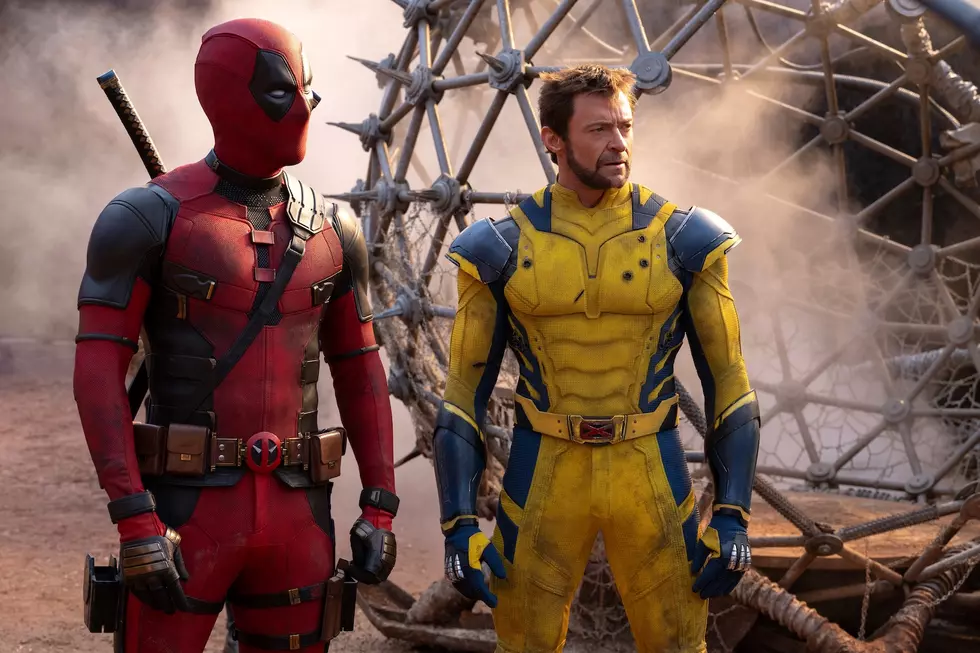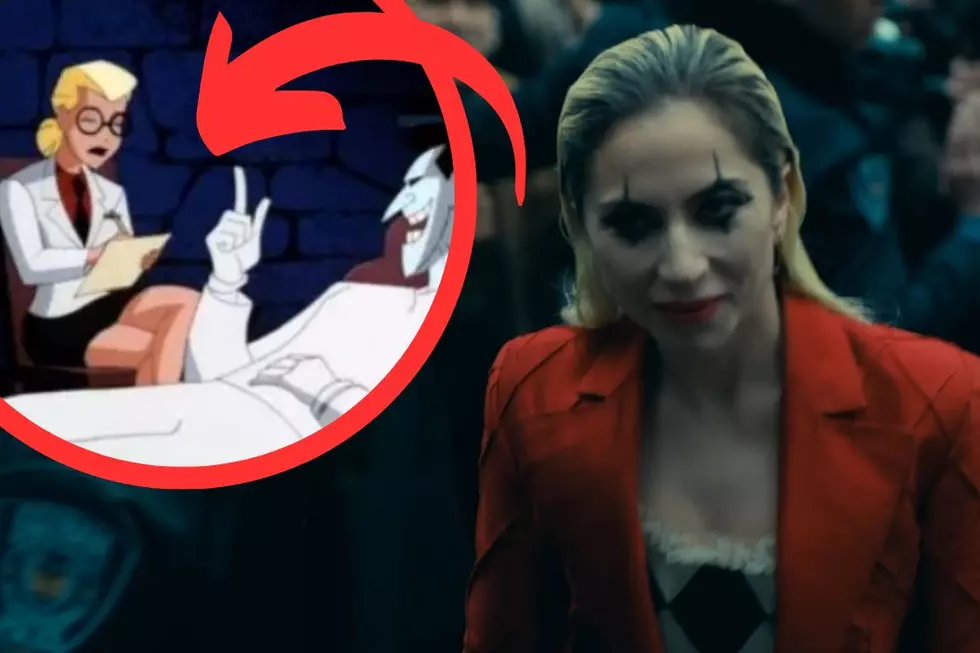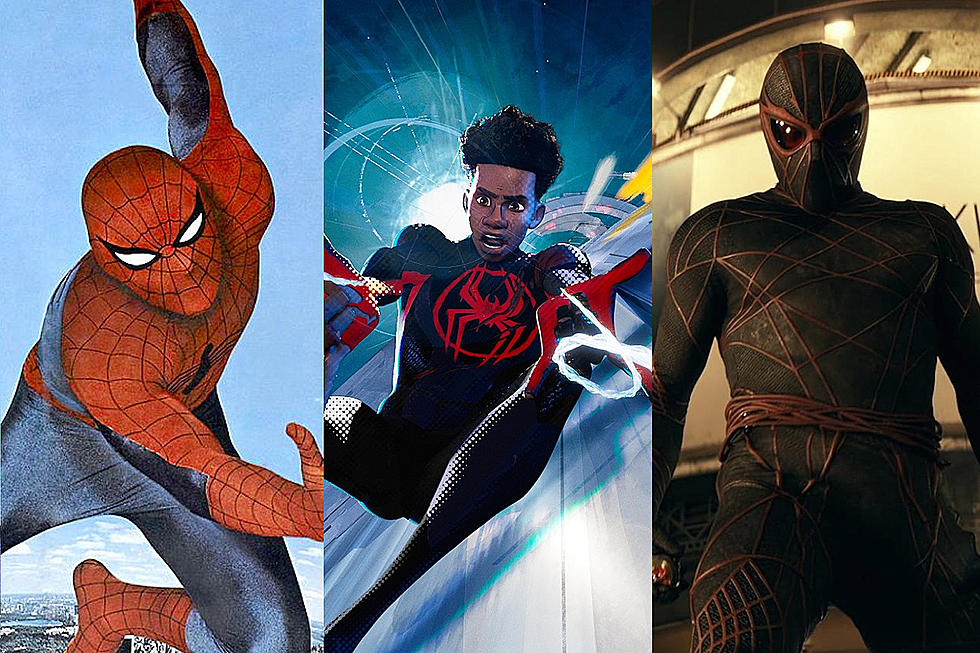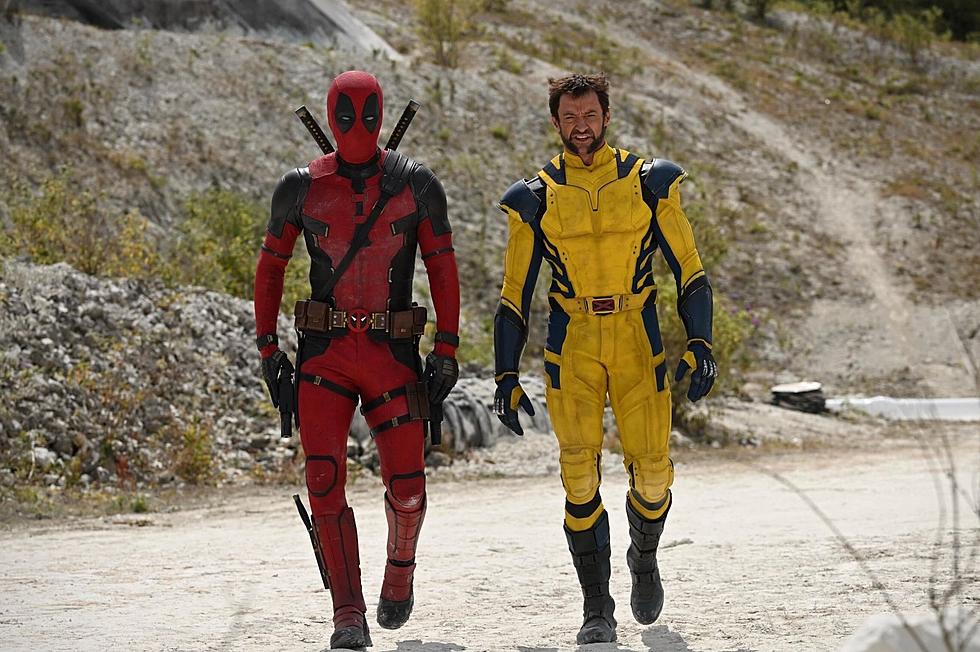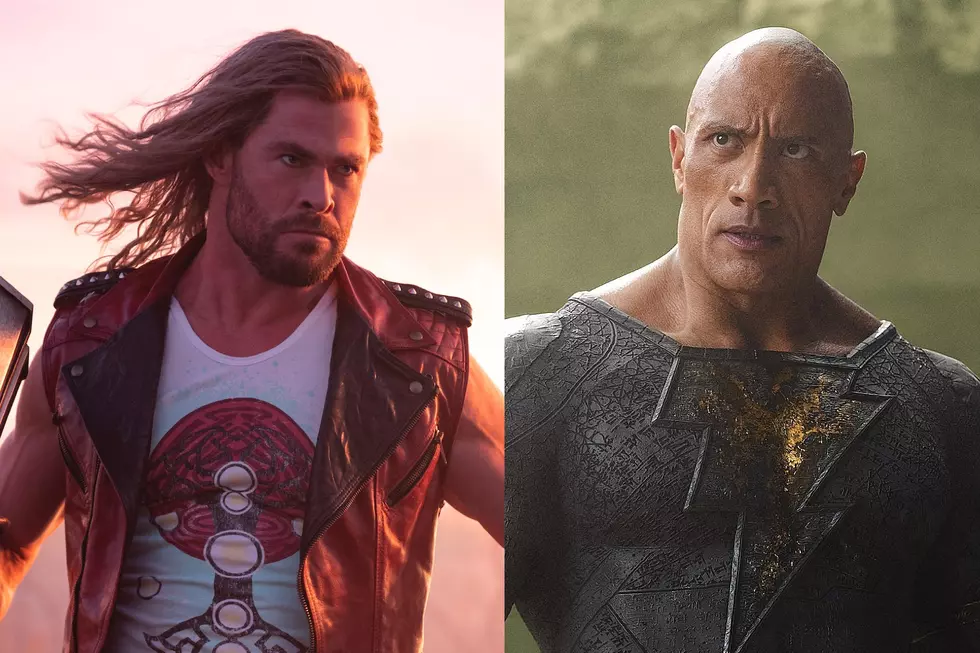
Superhero Movies Are Trending In a Dangerous Direction
This weekend, Dwayne Johnson celebrated all the good reviews his Black Adam was getting — from audiences.
“This phenomenal 90 percent AUDIENCE SCORE for #BlackAdam is so gratifying for so many reasons,” Johnson wrote on Twitter. “In the end, the only thing that matters to me is sending the people home happy.”
Johnson has every right to feel proud about that audience score on Rotten Tomatoes; Black Adam’s 90 percent is the highest for any DC movie since the start of the DC Extended Universe. (The company’s second-best score in the last nine years is Joker, which scored an 88 with audiences on Rotten Tomatoes.) But The Rock pointedly left out Black Adam’s critics score on the site, which currently stands at 39 percent — the same score as the original, disastrous version of Justice League.
Black Adam’s poor performance with critics appears to be part of a wider trend, not just among DC movies but among all the major superhero movies of recent years. True, these films continue to perform reasonably well at the box-office; Black Adam earned $67.0 million over the weekend, a very solid figure for a movie about a character very few outside hardcore comics readers had heard of before. Three of the year’s top ten movies are about superheroes, and the #1 movie of 2021, 2019, and 2018 were all from either Marvel or DC. (2020’s box office chart was ruined by Covid, although one of the few hits released before theaters shut down that spring was DC’s Birds of Prey.) But if you look at the aggregate reviews of these movies — including some metrics that measure audience satisfaction — things are not moving in a positive direction.
For example, while Black Adam got a 90 percent from audiences on Rotten Tomatoes, it only got a B+ from CinemaScore, the long-running audience polling group that solicits feedback from paying customers at the opening night of theatrical movies. A B+ might not sound that much lower than a 90 percent on Rotten Tomatoes, but CinemaScore users tend to be easy graders. An A from CinemaScore is good, an A- is decent, and pretty much anything below that indicates that word-of-mouth may not be that great for the title in question.
For sake of comparison, here are the CinemaScores for all the major DC Comics movies from Man of Steel in 2013 through the end of 2019.
- Man of Steel: A-
- Batman v Superman: B
- Suicide Squad: B+
- Wonder Woman: A
- Justice League: B+
- Aquaman: A-
- Shazam!: A
- Joker: B+
And here are the CinemaScores for all the DC movies since the start of 2020:
- Birds of Prey: B+
- Wonder Woman 1984: B+
- The Suicide Squad: B+
- The Batman: A-
- Black Adam: B+
The early years of the DCEU were divisive, but they still produced four titles with CinemaScores of A- or better. In the last three years, DC has released five big-screen titles and garnered just a single A-, Matt Reeves’ The Batman.
While Marvel’s movies have generally been more well-received by critics over the last decade, their CinemaScore grades have dropped even more precipitously in recent years than Warner Bros.’ and DC’s. Here are the CinemaScores of Phase Three of the Marvel Cinematic Universe:
- Captain America: Civil War: A
- Doctor Strange: A
- Guardians of the Galaxy Vol. 2: A
- Spider-Man: Homecoming: A
- Thor: Ragnarok: A
- Black Panther: A+
- Avengers: Infinity War: A
- Ant-Man and the Wasp: A-
- Captain Marvel: A
- Avengers: Endgame: A+
- Spider-Man Far From Home: A
As you can see, Marvel didn’t have a single movie score under an A- through all of MCU Phase Three. They averaged an A through 11 straight films. Compare that with the scores of Phase Four so far:
- Black Widow: A-
- Shang-Chi and the Legend of the Ten Rings: A
- Eternals: B
- Spider-Man: No Way Home: A+
- Doctor Strange in the Multiverse of Madness: B+
- Thor: Love and Thunder: B+
In a couple of years, Marvel has gone from an A to an A- CinemaScore average; and from no Bs at all in 11 straight titles to Bs for three of their last four productions (with No Way Home a notable but highly unusual aberration).
Marvel’s critics’ reviews tell an even more distressing stories. Phase Three of the MCU averaged an 89 on Rotten Tomatoes. Phase Four of the MCU is currently averaging a 74.6, including the company’s first movie to get a rotten score (Eternals, which got a 47 from critics). Thor: Love and Thunder, at 64, came perilously close to becoming the second earlier this summer.
(Interestingly, DC’s movies are actually doing slightly better with reviewers over the last few years than they had in the past. The first six years of the DCEU averaged a 58 on Rotten Tomatoes; from 2020’s Birds of Prey on, they’ve averaged a 70 percent from critics, and that’s with Black Adam’s barrel-bottom-scraping reviews.)
Theoretically, all of this could turn around with Marvel and/or DC’s next release. Black Panther: Wakanda Forever could be a massive smash with critics and audiences. Shazam! Fury of the Gods might get better reviews than the first movie. In the years ahead, both companies have new titles planned featuring many of their most popular characters, including the Guardians of the Galaxy, Michael Keaton’s version of Batman, and the Avengers. The Fantastic Four are getting a big reboot. Ryan Reynolds and Hugh Jackman are making a Deadpool and Wolverine team-up. Henry Cavill is back as Superman. It’s easy to imagine all of those sequels becoming crowd-pleasing hits.
But if you take a step back and look at the overall direction of superhero movies’ critics and audience reviews, they don’t appear to be on an upswing. The sheer number of films from both Marvel and DC (along with the glut of TV shows featuring their heroes) means each new production feel less and less special (and more and more repetitive). On a more practical level, the folks making these things are spread thinner and thinner across a multitude of titles. They have less time spend perfecting each one. And it’s hard to argue that’s not starting to show in the finished product.
For years, skeptics and cynics wrote about audiences getting superhero fatigue. But no matter how many films Marvel and Warners pumped out, audiences showed up — and they tended to enjoy every single one. However, this latest batch of numbers suggest the market for these movies might finally be oversaturated. Fans want to believe we live in the era of peak superhero cinema. But there’s a chance this genre may have already peaked.
Movie Theater Horror Stories Involving Smelly Food

More From 94.1 KRNA



